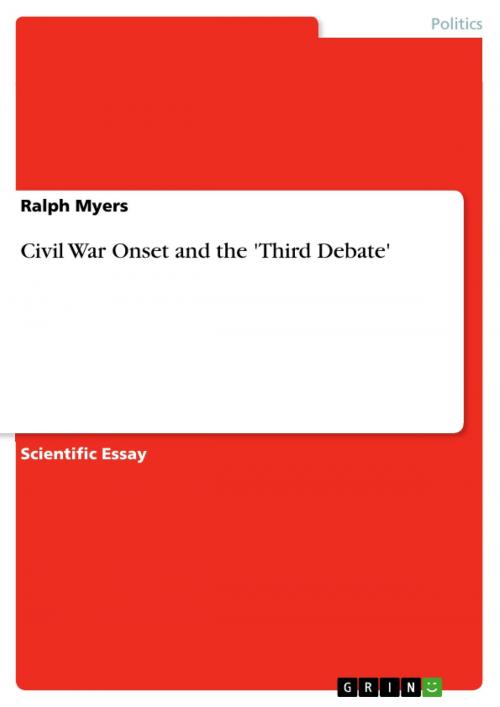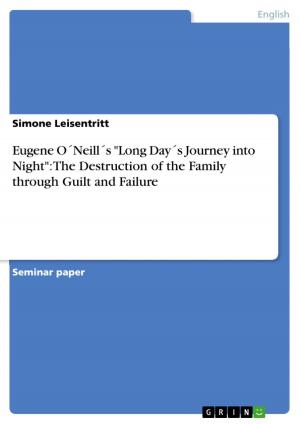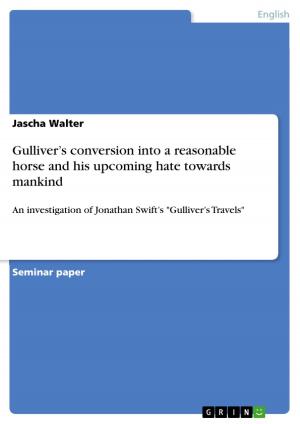Civil War Onset and the 'Third Debate'
Nonfiction, Social & Cultural Studies, Political Science, Politics, History & Theory| Author: | Ralph Myers | ISBN: | 9783640756001 |
| Publisher: | GRIN Publishing | Publication: | November 19, 2010 |
| Imprint: | GRIN Publishing | Language: | English |
| Author: | Ralph Myers |
| ISBN: | 9783640756001 |
| Publisher: | GRIN Publishing |
| Publication: | November 19, 2010 |
| Imprint: | GRIN Publishing |
| Language: | English |
Scientific Essay from the year 2010 in the subject Politics - Political Theory and the History of Ideas Journal, grade: 90%, Dublin City University, course: International Relations, language: English, abstract: Civil War Onset and the 'Third Debate': a Positivist versus Post-Positivist Approach According to Yosef Lapid (1989: 236), International Relations, by the end of the 1980's was 'in the midst of a third discipline-defining debate', between positivism and post-positivism. Scholars studying the phenomenon of civil war and its causes seem to have been largely exempt from this debate. There are two discernible reasons for this. First, the study of civil war has long been marginalized by the dominant theoretical paradigm of Realism within security studies, which does not concern itself with war, within the intrastate system. This is surprising, since from the start of the millennium, intrastate conflict has been far more prevalent than interstate conflict. Second, within the academic field of civil war onset, which this paper focuses on specifically, the theoretical approach is primarily positivist. Most literature on the subject of civil war, focuses around the so called 'greed-grievance debate, and though the latter does usually focus on identity, it remains essentially positivist. This however, does not mean that the 'Third Debate' does not apply to the academic field of civil war onset as this paper will show. This paper analyses two journal articles, one positivist: Greed and Grievance in Civil War (2004) by Paul Collier and Anke Hoeffler, and one post-positivist: The Construction of Grievance: Natural Resources and Identity in a Separatist Conflict (2007) by Edward Aspinall. Using these articles, this paper will compare and evaluate their research approaches, their worth and effectiveness in addressing the subject and research question and their contribution to knowledge. Finally this paper will give some recommendations as to future areas of inquiry.
Scientific Essay from the year 2010 in the subject Politics - Political Theory and the History of Ideas Journal, grade: 90%, Dublin City University, course: International Relations, language: English, abstract: Civil War Onset and the 'Third Debate': a Positivist versus Post-Positivist Approach According to Yosef Lapid (1989: 236), International Relations, by the end of the 1980's was 'in the midst of a third discipline-defining debate', between positivism and post-positivism. Scholars studying the phenomenon of civil war and its causes seem to have been largely exempt from this debate. There are two discernible reasons for this. First, the study of civil war has long been marginalized by the dominant theoretical paradigm of Realism within security studies, which does not concern itself with war, within the intrastate system. This is surprising, since from the start of the millennium, intrastate conflict has been far more prevalent than interstate conflict. Second, within the academic field of civil war onset, which this paper focuses on specifically, the theoretical approach is primarily positivist. Most literature on the subject of civil war, focuses around the so called 'greed-grievance debate, and though the latter does usually focus on identity, it remains essentially positivist. This however, does not mean that the 'Third Debate' does not apply to the academic field of civil war onset as this paper will show. This paper analyses two journal articles, one positivist: Greed and Grievance in Civil War (2004) by Paul Collier and Anke Hoeffler, and one post-positivist: The Construction of Grievance: Natural Resources and Identity in a Separatist Conflict (2007) by Edward Aspinall. Using these articles, this paper will compare and evaluate their research approaches, their worth and effectiveness in addressing the subject and research question and their contribution to knowledge. Finally this paper will give some recommendations as to future areas of inquiry.















